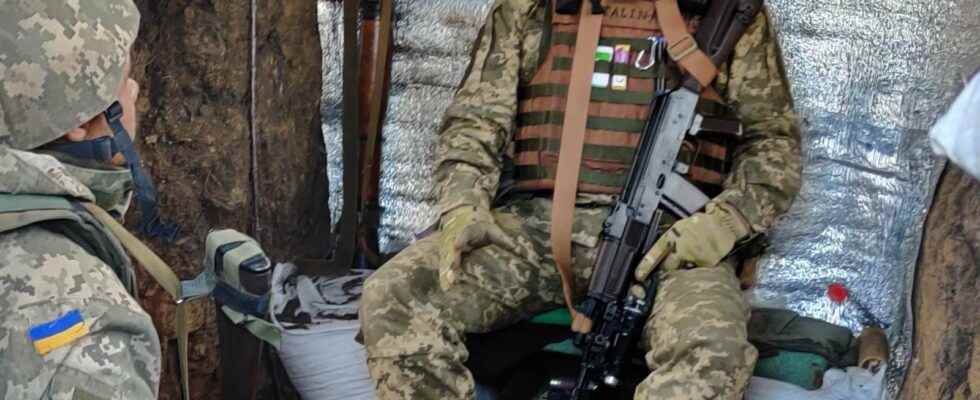Faced with an increasingly belligerent Russia, Ukraine has asked for help from the European Union to protect its IT infrastructure. Europe has sent a team of specialists from six countries to help the country defend against Russian cyberattacks.
You will also be interested
[EN VIDÉO] What is a cyberattack? With the development of the Internet and the cloud, cyberattacks are becoming more frequent and sophisticated. Who is behind these attacks and for what purpose? What are the methods of hackers and what are the most massive cyberattacks?
Modern warfare is no longer just about weapons and troops. As tensions continue to rise with Russia, the Lithuanian Ministry of Defense has just announced the dispatch to Ukraine of a European Cyber Attack Rapid Response Team (CRRT). The decision was taken following Ukraine’s request to deal with the russian strategy who leads a war hybrid mixing traditional military activities and cyberattacks.
The team, which should consist of eight to twelve experts, will be led by Lithuania. It will also include cybersecurity specialists from the Netherlands, Poland, Estonia, Romania and Croatia. It follows on from massive cyberattack suffered by many Ukrainian government sites and banking establishments in January. Authorities fear another imminent attack.
In response to #Ukraine request ???????????????????????????????????????????????? are activating LT-led Cyber Rapid Response Team, which will help ????????institutions to cope with growing cyber threats. #StandWithUkrainepic.twitter.com/posfmv3rVT
— Lithuanian MOD (@Lithuanian_MoD) February 22, 2022
An initiative that could expand to 13 member countries
Rapid response teams cyberattacks are part of a European defense project created in March 2020. They are made up of civilian and military experts from six countries. Seven other countries, including France, were then simple observers of the project but should also strengthen the teams in the future.
A spokesperson told the bbc that the team sent to Ukraine is made up of specialists in different fields, including ” incident response, digital forensics, vulnerability assessment, to be able to react to various scenarios “. Russia has already been implicated in previous cyberattacks in Ukraine, including those that targeted electricity infrastructure and caused power outages in 2015 and 2016, or NotPetya ransomware in 2017. Moscow then called the accusations “Russophobic”.
Support an editorial team committed to popularizing science on Patreon!
Our mission ? Return the knowledge accessible to everyone.
We produce our own articles, investigations and reports every day, all on a human scale. Support us in this approach and this ambition.
Subscribe to Futura on Patreon!
Two subscription plans are offered to you with the following advantages:
- ” Futura ad-free »: get guaranteed ad-free access to the entire site for €3.29/month (+VAT).
- ” I participate in the life of Futura »: in addition to access without advertising, take part in the life of our independent media (votes, new content, surveys, etc.) for €6.29/month (+VAT).
Interested in what you just read?
